Are Dog Dental Chews Effective? What the Science Shows
Medical Disclaimer: This article is for informational purposes only and does not constitute medical advice. The content is not intended to be a substitute for professional veterinary advice, diagnosis, or treatment. Always seek the advice of your veterinarian with any questions you may have regarding your pet’s medical condition. Never disregard professional veterinary advice or delay in seeking it because of something you have read on this blog.
Table of Contents
Key Takeaways
Are you wondering if those dog dental chews you see at the store are worth it? Here’s what you need to know. Yes, certain dog dental chews are scientifically proven to help reduce plaque and tartar buildup through their scrubbing action. However, not all chews are effective or safe.
The most reliable products are those with the Veterinary Oral Health Council (VOHC) seal. Remember, these chews are a helpful supplement, not a replacement for the gold standard: daily toothbrushing. Always choose a chew that is the right size for your dog and supervise them to prevent choking or tooth fractures. When used correctly as part of a complete oral hygiene routine, dog dental chews can be a valuable tool in maintaining your dog’s overall health.
A Vet’s Perspective on Your Dog’s Dental Health
You can also visit: https://doglifeexpert.com/periodontal-disease-in-dogs-3-shocking-dangers/
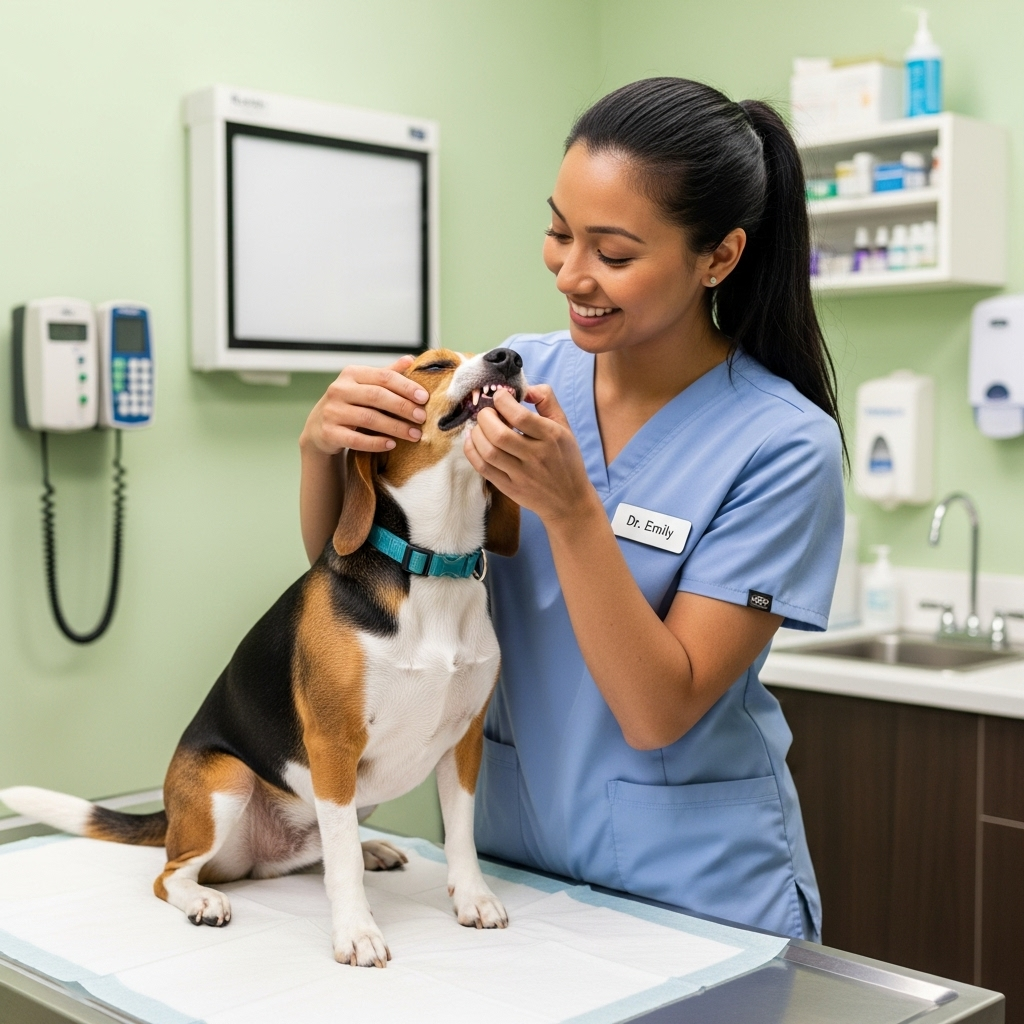
As a vet in Ottawa, one of the most common conversations I have with pet owners starts with, “Is my dog’s breath supposed to smell this bad?” That distinct, unpleasant odour, often lovingly (or not-so-lovingly) referred to as “doggie breath,” is more than just an inconvenience. It’s often the first red flag for underlying dental problems.
Why We Can’t Ignore “Doggie Breath”
I remember a lovely little Shih Tzu named Gizmo who came into my clinic for his annual check-up. His owner mentioned his breath had become quite pungent. Upon examination, I found significant tartar buildup and inflamed gums, classic signs of periodontal disease. This is an incredibly common scenario. That bad breath is caused by bacteria building up on the teeth and under the gumline, forming plaque. If not removed, this plaque hardens into tartar, leading to gingivitis and, eventually, more severe dental disease.
According to the Merck Veterinary Manual’s section on Dental Disease in Dogs, most dogs have evidence of periodontal disease by the time they are three years old. This is why tools like effective dog dental chews have become so popular, as owners look for simple ways to improve oral hygiene.
The Surprising Link Between Dental Disease and Overall Health
Gizmo’s story didn’t end with his mouth. The bacteria from severe dental disease don’t just stay put. They can enter the bloodstream through inflamed, bleeding gums and travel to vital organs like the heart, kidneys, and liver, potentially causing serious systemic health issues. While a direct causal link is complex to prove definitively,
The association is well-established in veterinary medicine. Keeping your dog’s mouth clean is not just about fresh breath; it’s a crucial component of their long-term health and well-being. This is why I am passionate about proactive dental care, which includes a combination of professional cleanings and consistent at-home habits, where the right dog dental chews can play a supportive role.
How Do Dog Dental Chews Work? The Science of the Scrub
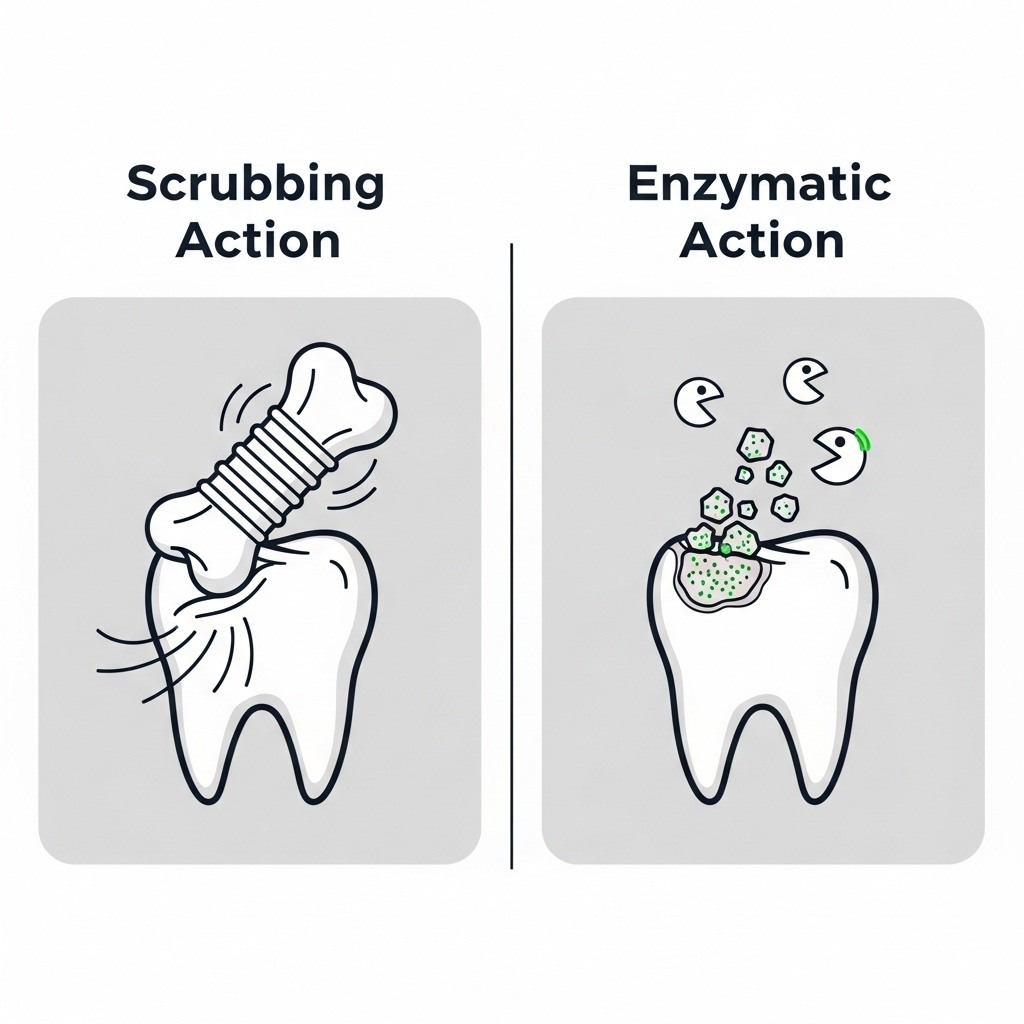
So, how does a simple treat claim to clean teeth? The effectiveness of dog dental chews relies on two main principles: mechanical abrasion and, in some cases, enzymatic action.
The Mechanical Action: Scraping Away Plaque
The primary way most dog dental chews work is through physical friction. As your dog gnaws on the chew, its unique shape, size, and texture work to scrape plaque off the tooth surface, much like a toothbrush would. The chew needs to be firm enough to be abrasive but not so hard that it could fracture a tooth.
Think of it like scrubbing a dirty pot. A soft sponge won’t do much, but a good scrub brush will lift the grime away. The best dog dental chews are designed to last, encouraging prolonged chewing that allows the product to make contact with a larger surface area of the teeth, including those hard-to-reach molars at the back.
The Enzymatic Action: A Chemical Assist
Some advanced dog dental chews also include active ingredients that provide a chemical cleaning boost. These often contain enzymes, like glucose oxidase and lactoperoxidase, which can help to reduce the bacterial load in the mouth. These enzymes can disrupt the formation of the biofilm that leads to plaque, offering another layer of defence. While this enzymatic action is a great bonus, the mechanical scrubbing from the chewing itself does most of the heavy lifting. The goal of these enhanced dog dental chews is to make the oral environment less hospitable for plaque-causing bacteria.
The Evidence: What Clinical Studies Reveal About Dog Dental Chews
As a veterinarian, I rely on evidence, not just marketing claims. When a client asks me, “Do these dog dental chews work?” I want to give them an answer backed by science. Fortunately, there is a growing body of research on the topic.
Do They Reduce Plaque and Tartar?
Yes, multiple studies have shown that specific dog dental chews can significantly reduce plaque and tartar. For instance, a study published in the Journal of Veterinary Dentistry demonstrated that daily use of a particular dental chew resulted in a noticeable reduction in calculus (tartar) accumulation compared to dogs who did not receive the chew. The key takeaway from the research is consistency. Giving a dental chew once a week won’t have much of an impact. For dog dental chews to be effective, they need to be given daily, as recommended by the manufacturer.
Are All Dog Dental Chews Created Equal? The VOHC Seal of Acceptance
This is the most important point I can make: not all dog dental chews on the market are effective. So, how can a pet owner tell the good from the bad? The easiest way is to look for the Veterinary Oral Health Council (VOHC) seal. The VOHC is an independent organisation that evaluates pet products to see if they meet pre-set standards for plaque and tartar reduction.
To earn this seal, a company must submit detailed data from clinical trials conducted according to VOHC protocols. If the product is proven to reduce plaque or tartar by a statistically significant amount, it earns the right to display the VOHC Accepted® Products seal. When you choose dog dental chews with the VOHC seal, you can be confident that you’re not just buying a treat, but a product with proven dental benefits.
Choosing the Right Dog Dental Chews: A Vet’s Checklist
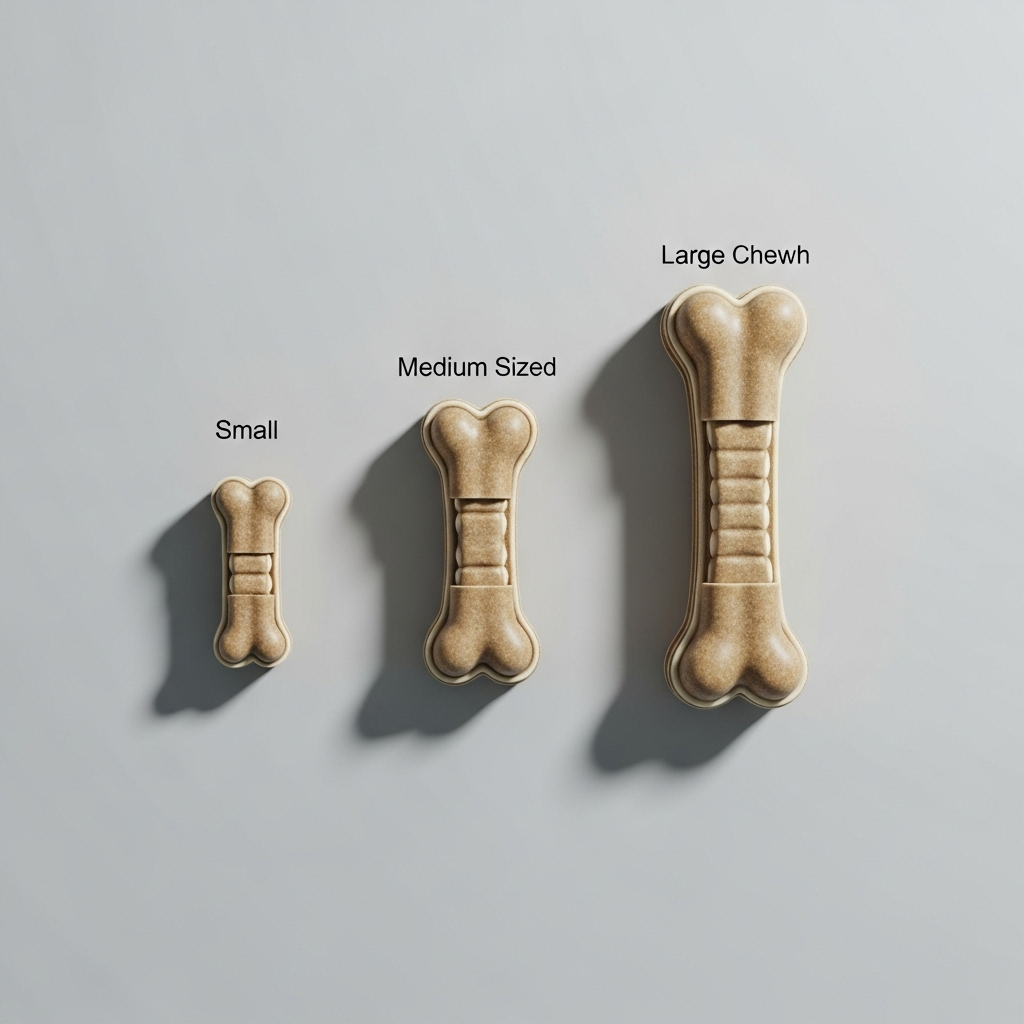
Walking down the pet store aisle can be overwhelming. There are countless options for dog dental chews, all claiming to be the best. Here’s a practical checklist to help you make a safe and effective choice.
Size and Texture Matter
The “thumbnail rule” is a great starting point: if you can’t indent chew with your thumbnail, it’s likely too hard for your dog and could lead to a painful and expensive tooth fracture. Avoid very hard items like bones, antlers, and nylon chews. The chew should also be appropriately sized for your dog. A toy poodle shouldn’t get a chew designed for a Great Dane, as it could pose a choking hazard. Conversely, a large dog could swallow a small chew whole, leading to a potential gastrointestinal obstruction.
Key Ingredients to Look For
When scanning the ingredient list of dog dental chews, look for things that add nutritional value or have active dental benefits. Ingredients like sodium hexametaphosphate can help prevent tartar formation. As mentioned earlier, enzymes can provide an extra cleaning boost. Generally, you want a short, understandable ingredient list.
Red Flags: Ingredients and Chew Types to Avoid
Be cautious of dog dental chews with a long list of artificial colours, flavours, and preservatives. High-fat content can also be a problem, contributing to unwanted weight gain or even pancreatitis in sensitive dogs. Avoid rawhide chews, as they can sometimes pose a choking or digestive blockage risk, and there have been concerns about chemical contamination during manufacturing.
Beyond the Chew: A Complete At-Home Dental Care Routine
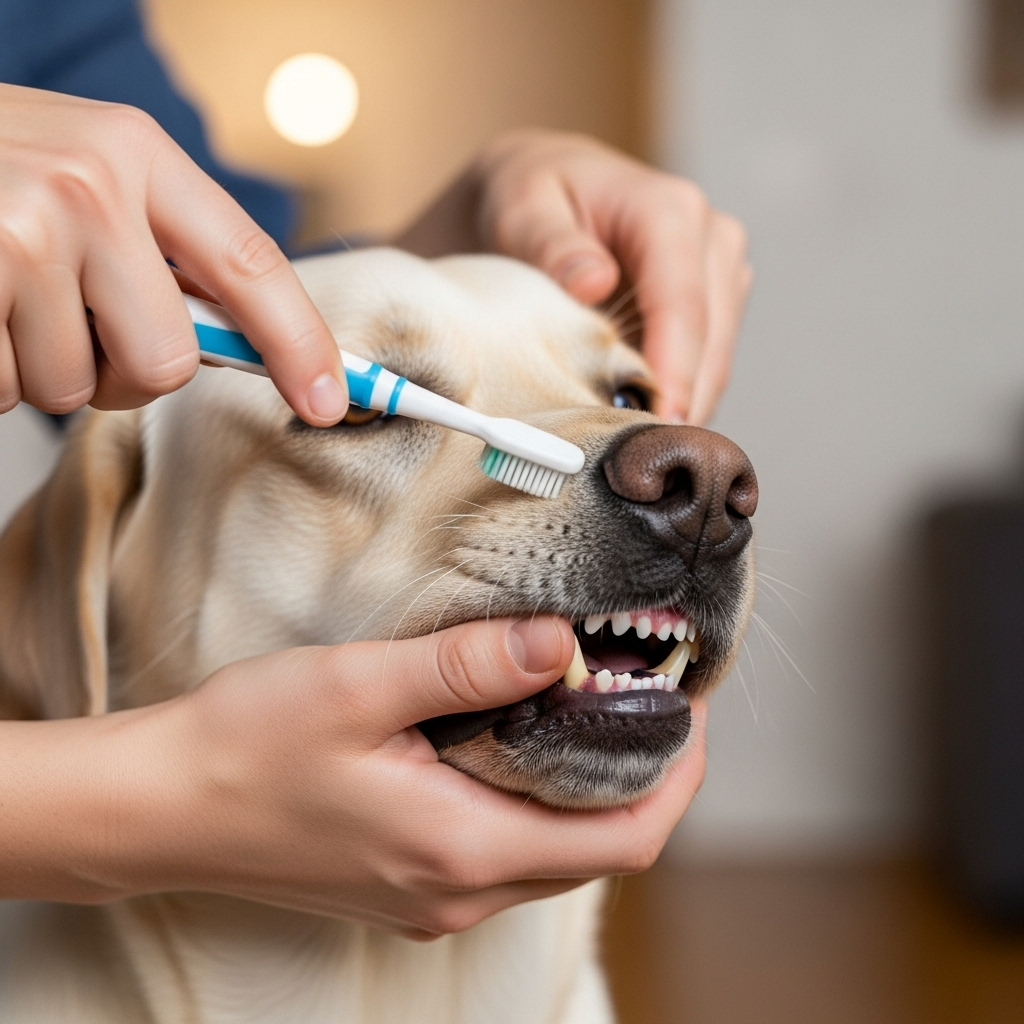
While choosing the right dog dental chews is a great step, they are only one piece of the puzzle. A truly effective dental health plan is a multi-faceted one. The goal of at-home care is to reduce the frequency of professional cleanings under anaesthesia.
Your 5-Minute At-Home Dental Health Checklist
- Daily Brushing: Use a soft-bristled brush and pet-safe toothpaste. (Never use human toothpaste!)
- Inspect the Gums: Once a week, gently lift your dog’s lips to check for redness, swelling, or bleeding.
- Check for Broken Teeth: While you’re looking at the gums, inspect the teeth for any fractures or discolouration.
- Provide a Safe Chew: If you’re using dog dental chews, offer one daily under supervision.
- Sniff Test: A consistently foul odour warrants a call to your vet.
The Gold Standard: Why Brushing Still Reigns Supreme
I can’t stress this enough: no chew, wipe, or additive can replace the mechanical action of daily brushing. It is, and remains, the single most effective way to remove plaque before it turns into tartar. A comprehensive review in the Journal of the American Veterinary Medical Association on home dental care confirms that toothbrushing is the gold standard. I tell my clients to think of dog dental chews as a helpful assistant in the fight against dental disease, but brushing is the superstar player.
The Cost of Clean Teeth in Canada
Investing in preventative care, like dog dental chews and brushing, can save you significant money in the long run. A professional dental cleaning is a much more involved and expensive procedure.
Typical Costs for Professional Dental Cleaning
In Canada, a routine professional dental cleaning for a dog can range from $600 to $1,500 or more. This cost covers pre-anaesthetic bloodwork, general anaesthesia, a full oral exam and dental charting, scaling and polishing of the teeth, and post-operative monitoring. If extractions are needed, the cost can increase significantly, sometimes by several hundred dollars per tooth, depending on the complexity. These figures highlight the value of proactive at-home care. A daily habit of brushing and providing effective dog dental chews is a small investment to prevent a much larger expense.
4 Vet-Approved Tips for Preventing Dental Disease

- Start Early: Get your puppy used to having their mouth handled from a young age. This will make brushing much easier later in life.
- Brush Daily: Make it a part of your daily routine, just like their walk. Consistency is far more important than intensity.
- Choose VOHC-Approved Products: When selecting dog dental chews, dental diets, or water additives, look for the VOHC seal to ensure you’re using a product with proven effectiveness.
- Schedule Annual Vet Check-ups: As outlined in veterinary texts like Blackwell’s Five-Minute Veterinary Consult, regular professional exams are crucial for catching dental issues early, before they become severe and painful. Your vet can assess when a professional cleaning is necessary.
Frequently Asked Questions About Dog Dental Chews
How often should I give my dog a dental chew?
Most manufacturers recommend one dental chew per day. It’s crucial to follow the product’s specific guidelines and monitor your dog to ensure they are chewing properly and not swallowing large pieces. Daily use is key for dog dental chews to be effective.
Can dog dental chews replace brushing?
No, dog dental chews are a supplement to, not a replacement for, regular toothbrushing. Brushing remains the most effective single method for removing plaque. Think of chews as a helpful part of a complete oral hygiene routine.
Are there any risks associated with dog dental chews?
Yes, there are risks. Some chews can be too hard, leading to fractured teeth. Others can be a choking or gastrointestinal obstruction hazard if not chewed properly. Always supervise your dog and choose a product that is appropriately sized and has some flexibility.
What if my dog doesn’t like dental chews?
If your dog isn’t a fan of dog dental chews, don’t force it. There are many other effective options for at-home dental care, including dental diets, water additives, dental wipes, and, most importantly, daily brushing. Speak with your vet to find the best alternative for your pet.
The Final Chew: A Vet’s Closing Thoughts
In the complex world of pet care, it’s easy to get lost in conflicting advice. But when it comes to your dog’s oral health, the path forward is refreshingly clear. The right dog dental chews, those that are safe, appropriately sized, and ideally VOHC-approved, are more than just a tasty treat. They are a scientifically validated tool that can genuinely help in the daily battle against plaque and tartar.
However, they are not a magic wand. True dental wellness is a partnership between you, your dog, and your veterinary team. It’s built on the foundation of daily brushing, supplemented by smart choices like effective dog dental chews, and cemented by regular professional cleanings. By embracing this complete approach, you’re not just preventing bad breath; you’re protecting your beloved companion from pain and contributing to a longer, healthier, and happier life together. And that’s a goal worth smiling about.

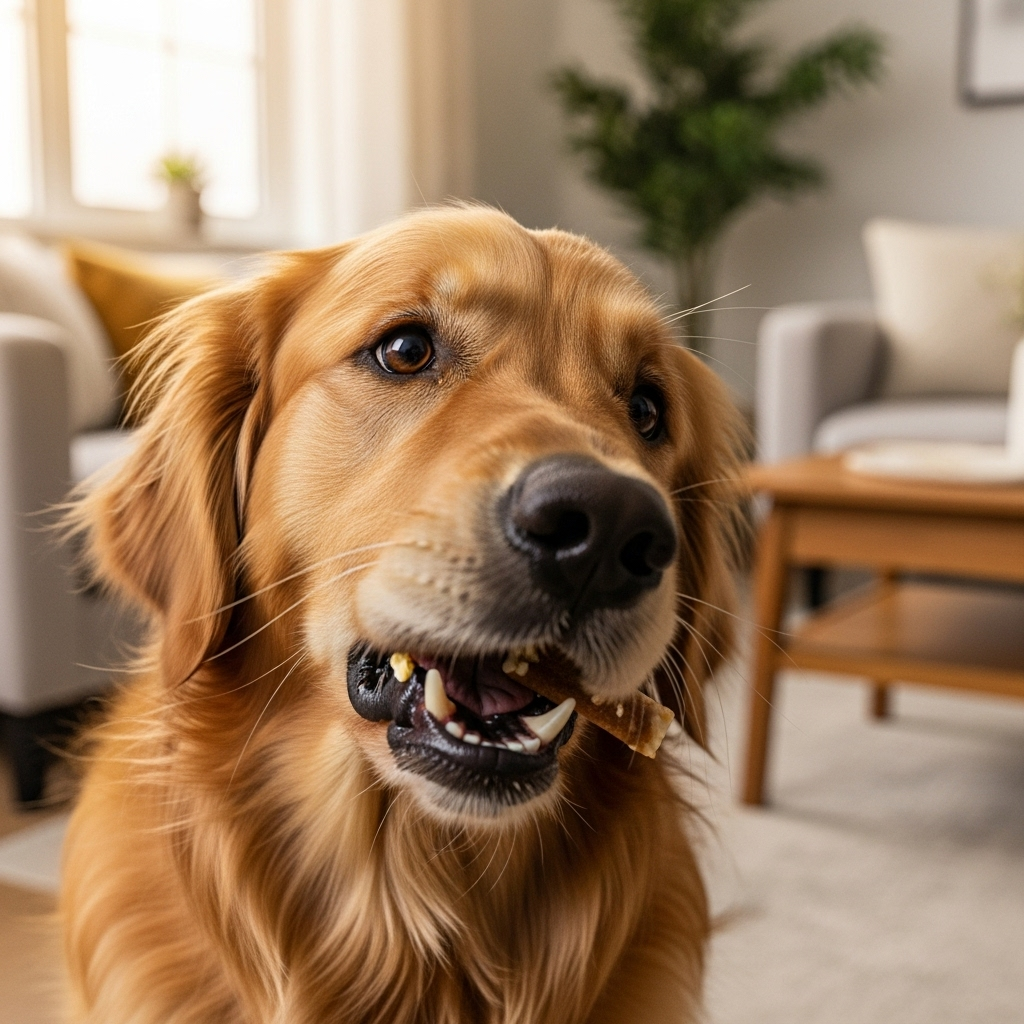



Pingback: Heartworm Prevention for Dogs: 5 Alarming Reasons Not to Skip